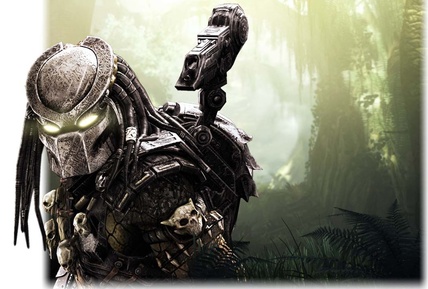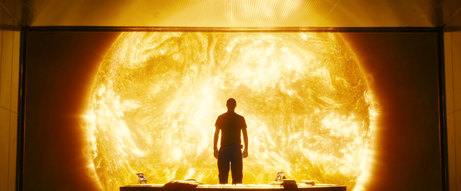It's been a while. My head is stuffed with measured quality nipple-shields, burp-methods, swaddling techniques, seedy yellow and black-tar baby-crap and endless high-pitched, end-of-the-world, soul-crushing wails. I'm never entirely sure if I should change his diaper or call a priest. Point is, my son is here. With a vengeance. And he's here to stay.
I've been thinking about my new role as father. I'm still waiting for this sense of awe that people are telling me about. I'm supposed to be overcome with this kind of euphoric man-son abridgment. I haven't felt that yet. But here's what it's like for me.
Have you ever been in very deep, open water? Like the ocean, or a great lake? Because that's what seeing my brand new baby boy was like. It was like seeing the ocean for the first time. And the ocean is a vast thing. An existence apart from us. It's so endless, and beneath its surface is an entire universe of undiscovered, unknown, unobserved and terrifying possibilities. Seeing my son for the first time was like treading open water, peering through a crystalline lens of shock at the immense marine shadows moving slowly and intently beneath my dangling toes. Not seeing the tiny baby he is, but seeing the man that he's going to be, and that he'll be a reflection of me, was the most terrifying thing I've ever experienced. I hope beyond all hope that I don't fail that man, that distant mosaic of me. I hope that he likes me. People say, "bah, of course he'll like you." That's not so easy for me. The first fist-fight I ever got in was with my father. The first of many. He either beat what weaknesses I have into me, or tempered me with bone. I'm still not sure which. I'm not intending to be so intimate, but Hemingway said that writers should write what they have to say instead of speak it, so here I am: my deepest fear is that there's some natural law of the cosmos by which all fathers shall resent their sons, and vice-versa. I can't shake that fear, because it's all I've known, and I hope it drives me to be the best. I hope it pushes me to be a better man.
The first time I saw the ocean, I lost my mind. It was the biggest thing I'd ever seen. The horizon stole my breath. I flipped out and charged into the squall - ten foot waves - my wife as my witness, fully clothed, I swam as hard and as far as I could, not thinking about the deep unknown stretched out below me. It was pure, thoughtless joy - the kind of joy that can only be felt once you've cast yourself into something massive and endless - an absolute torsion release of rope and tether and care and worry. That's how I want to approach this new time in my life. That's the kind of father I want to be.
-Shane.
I've been thinking about my new role as father. I'm still waiting for this sense of awe that people are telling me about. I'm supposed to be overcome with this kind of euphoric man-son abridgment. I haven't felt that yet. But here's what it's like for me.
Have you ever been in very deep, open water? Like the ocean, or a great lake? Because that's what seeing my brand new baby boy was like. It was like seeing the ocean for the first time. And the ocean is a vast thing. An existence apart from us. It's so endless, and beneath its surface is an entire universe of undiscovered, unknown, unobserved and terrifying possibilities. Seeing my son for the first time was like treading open water, peering through a crystalline lens of shock at the immense marine shadows moving slowly and intently beneath my dangling toes. Not seeing the tiny baby he is, but seeing the man that he's going to be, and that he'll be a reflection of me, was the most terrifying thing I've ever experienced. I hope beyond all hope that I don't fail that man, that distant mosaic of me. I hope that he likes me. People say, "bah, of course he'll like you." That's not so easy for me. The first fist-fight I ever got in was with my father. The first of many. He either beat what weaknesses I have into me, or tempered me with bone. I'm still not sure which. I'm not intending to be so intimate, but Hemingway said that writers should write what they have to say instead of speak it, so here I am: my deepest fear is that there's some natural law of the cosmos by which all fathers shall resent their sons, and vice-versa. I can't shake that fear, because it's all I've known, and I hope it drives me to be the best. I hope it pushes me to be a better man.
The first time I saw the ocean, I lost my mind. It was the biggest thing I'd ever seen. The horizon stole my breath. I flipped out and charged into the squall - ten foot waves - my wife as my witness, fully clothed, I swam as hard and as far as I could, not thinking about the deep unknown stretched out below me. It was pure, thoughtless joy - the kind of joy that can only be felt once you've cast yourself into something massive and endless - an absolute torsion release of rope and tether and care and worry. That's how I want to approach this new time in my life. That's the kind of father I want to be.
-Shane.


